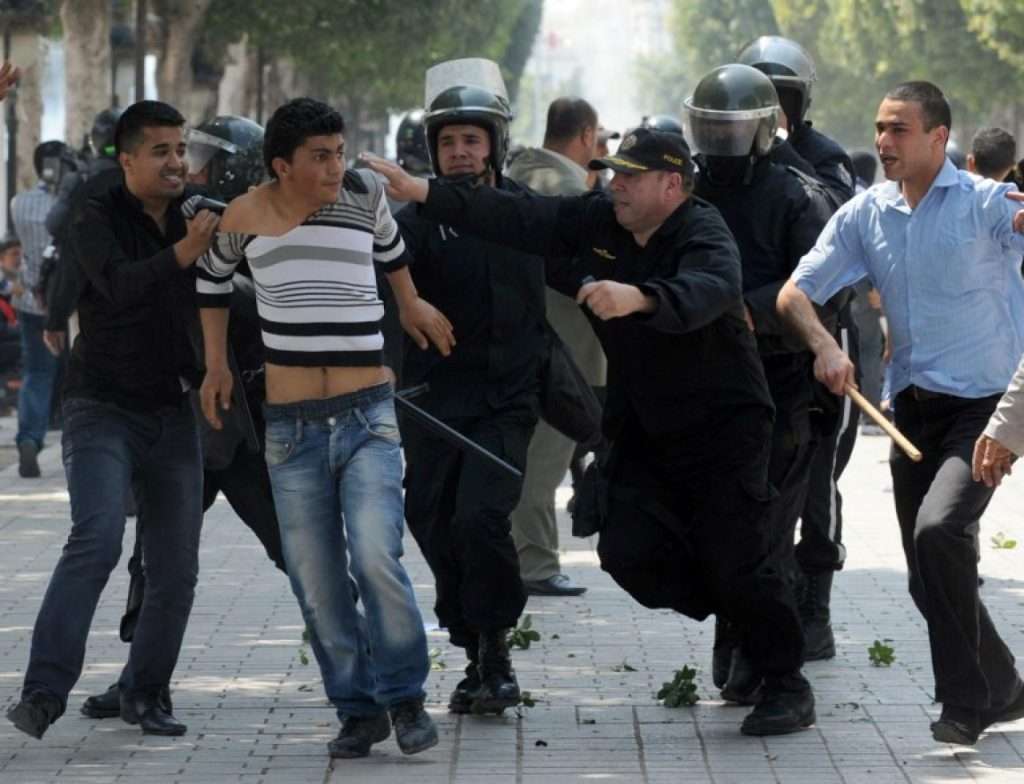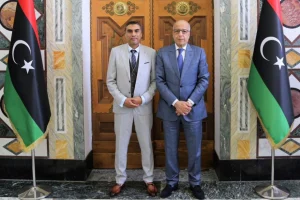State Department Concerns Over Saied’s Tunisia

Confidence in the Saied government is waning at an alarming rate by the Biden administration which is left aghast at how this country, which gave the region the Arab Spring in 2011, is now a backward, brutal dictatorship which has not even spared the judiciary in its purge. But does Saied even have a “plan B” if an IMF loan is scrapped? Do the Americans?
The chances of an IMF bail out for Tunisia are looking increasingly slim following Secretary of State Anthony Blinken’s diplomatic gesturing on March 23 where he urged the Tunisian president to resolve his problems with the country’s unions and move forward with the loan.
However, a day later, and the prose is a tad more acerbic hinting that the Americans have lost both confidence and patience with the Tunisian dictator, indicating that the IMF bail out loan is unlikely ever to materialise under Saied’s term in office as president.
Blinken’s deputy didn’t pull any punches.
Tunisian President Kais Saied has caused “enormous concern” about where Tunisia is headed with moves that have weakened democratic checks and balances, U.S. Assistant Secretary of State Barbara Leaf said on March 23rd.
After years of efforts to build a democracy “what we’ve seen in the last year and a half is the government taking Tunisia in a very different direction,” Leaf told Reuters, voicing Washington’s clearest criticism of Saied to date.
“There have been a number of moves over the past year by the president that frankly have weakened foundational principles of checks and balances,” she said.
Saied seized most powers in 2021, shutting down parliament before passing a new constitution that gives himself near total sway, and police have this year arrested more than a dozen opposition figures who accuse him of a coup.
Saied says his actions were legal and needed to save Tunisia from years of chaos, while accusing his opponents of being criminals, traitors and terrorists.
Leaf said Said’s recent remarks that any judges who released suspects would be considered as abetting them were “exactly the sort of commentary that has given us enormous concern about where Tunisia is headed, guided by this president”.
She said many Tunisians were dissatisfied by the years following the 2011 revolution that brought democracy, but said “to correct those deficiencies you don’t strip institutions of their power”.
“I can think of no more important institution than an independent judiciary,” she added.
Saied has been criticised for comments last month that there was a criminal plot to change Tunisia’s demography via illegal migration as he announced a crackdown on undocumented migrants.
“These were comments that created a terrible climate of fear but more than that actually resulted in attacks on these very vulnerable people, attacks and a tidal wave of racist rhetoric,” Leaf said.
Asked about Tunisian steps to reassure over migrant rights, which included longer visas and a reminder to police on anti-racism laws, but not a retraction of Saied’s comments on demographics, she said “there’s still work to be done”.
Saied has rejected previous criticism as foreign interference.
“Friends speak to friends with honesty… we will criticise where criticism is merited. That’s not interference,” Leaf said.
The fate of Tunisia’s efforts to secure a $1.9 billion IMF loan in support of reforms to help avert an economic collapse was in the government’s own hands, she said.
“This is a package that they (the Tunisian government) negotiated, that they came up with, and for whatever reason they still have not signed onto the package that they negotiated,” she added.
“The international community is ready to support Tunisia when its leadership makes fundamental decisions about where it’s going,” she said, adding that until the government decided to sign its own reform package, “our hands are tied”.
Tunisia’s decision to carry out reforms it suggested to the IMF was “a sovereign decision … and if they decide not to do that we are keen to know what the plan B or plan C is,” she said.
Want to chase the pulse of North Africa?
Subscribe to receive our FREE weekly PDF magazine












